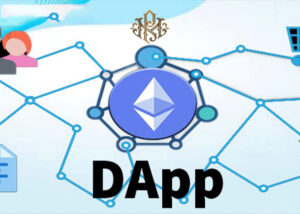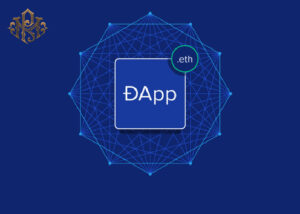
Close



Definition of decentralized applications: A decentralized application or decentralized application (DApp) is a type of software or application that runs on a peer-to-peer network or blockchain and operates independently of the control of a specific person or organization. These programs run in a public environment, open source and without central control.
Increasing popularity of DApps: In the last few years, decentralized applications (DApps) have gained a lot of attention. For example, the number of these apps has grown from 25 in 2015 to more than 3,600 now, baked into a variety of fields from games and decentralized financial services to social media platforms and other areas.
The volume of transactions that users make using decentralized applications has reached close to $182.5 per year. This shows the increasing importance of these programs in the blockchain world.

Due to its ability to create innovation and develop new technologies, the blockchain space has become the place for the emergence of various decentralized applications. The main applications of these programs in the current world are:
One of the prominent applications of DApps is decentralized finance or DeFi. With a valuation of more than 40 billion dollars and the attention of many investors, DeFi provides innovative solutions in the field of lending, borrowing money and creating new financial services, and it is growing a lot.
Decentralized applications as blockchain-based solutions are creating new industries and helping to improve the efficiency and growth of businesses. These programs have been effective in fields ranging from supply chain management to healthcare and pharmaceuticals.
Digital Games and Collections One of the first decentralized applications to gain significant attention was CryptoKitties. With its popularity and success, this game inspired similar projects that tried to replicate the success of the first DApps. Games like Gods Unchained and Decentraland showed that there is still a significant demand for decentralized applications. Also, the growing trend of non-fungible tokens has strongly encouraged the need to develop blockchain-based digital collections.
Almost all decentralized applications are based on the Ethereum blockchain; Because this network was the first all-purpose ecosystem that can be easily used to develop and support all kinds of applications. Even with competitors like Solana, Polygon and others, developers still use this ecosystem to develop decentralized applications.

Agreeing to the protocol: All participants in the decision-making process must agree to the use of cryptographic algorithms. This is an essential part of proof of value validation.
Open source: One of the main advantages of DApps is their complete transparency due to being open source. Anyone can view code data and ensure complete transparency of processes. In addition, the system works independently and does not require the involvement of developers.
Decentralization: DApps run on a decentralized ecosystem and are exempt from centralization. This means that it is not run by a specific organization or person, and all operational records of the program are stored in a blockchain.
Rewarding: Any DApp can generate tokens and distribute these digital assets to interested parties. This is necessary to demonstrate the value of the product and should also reward its investors.